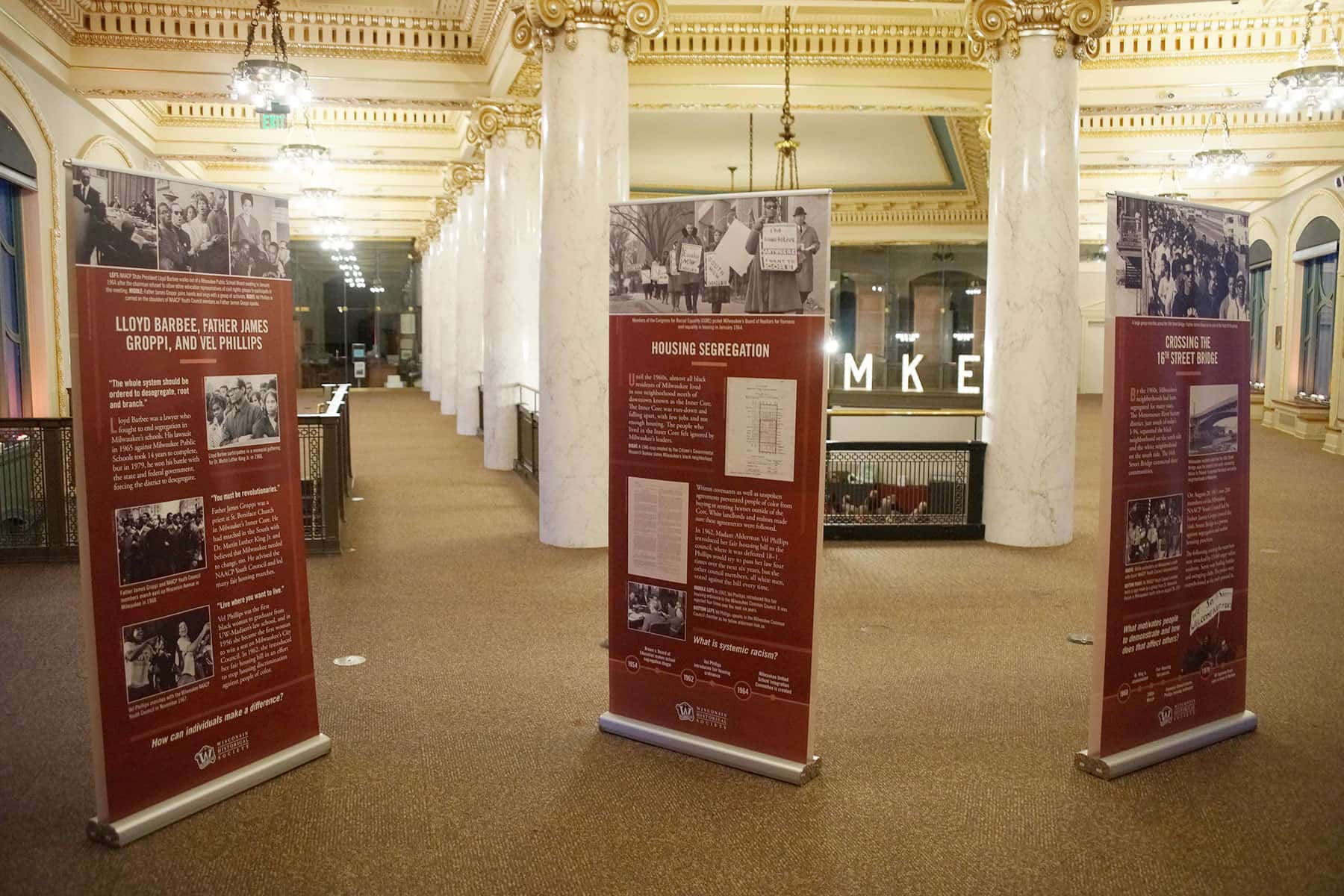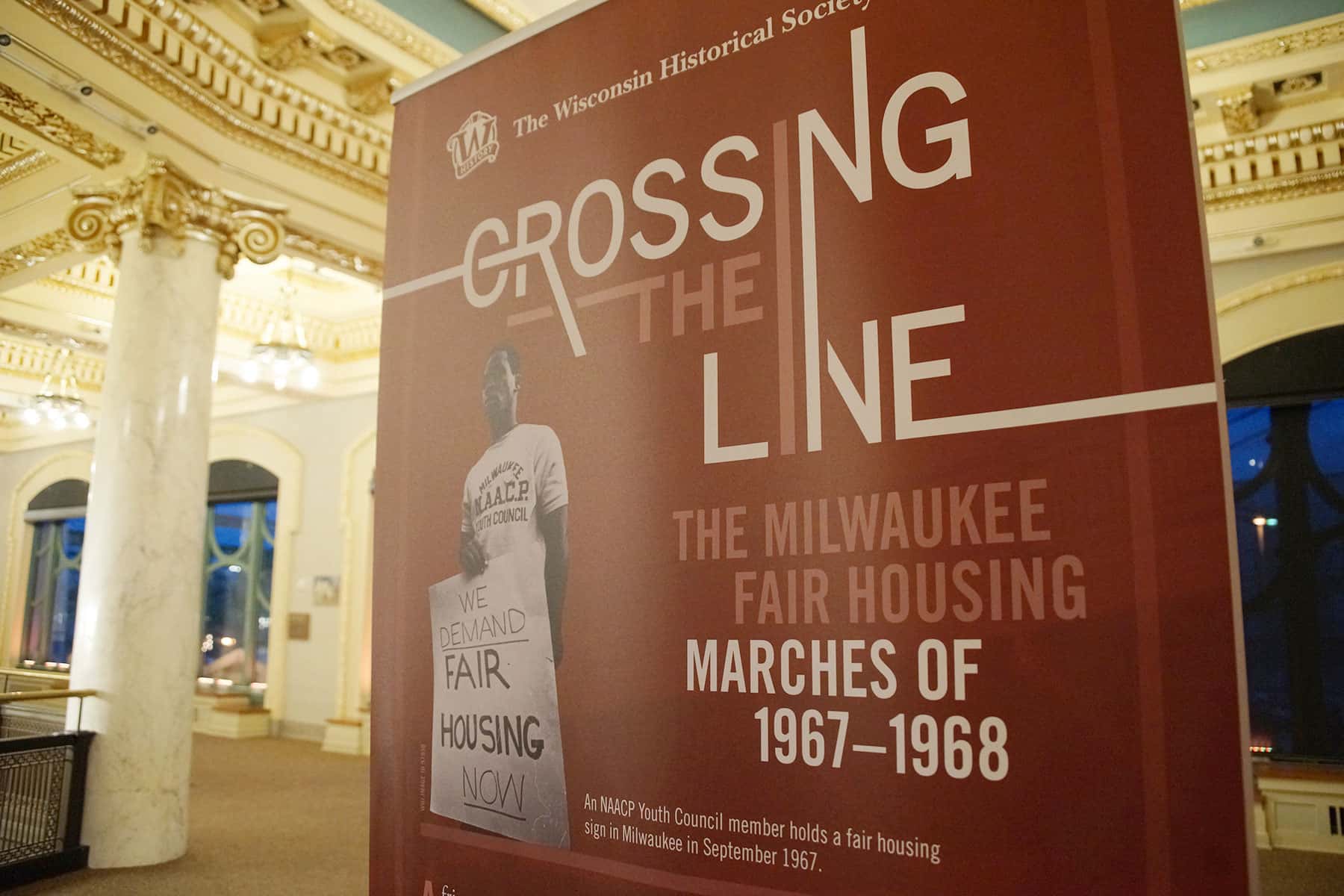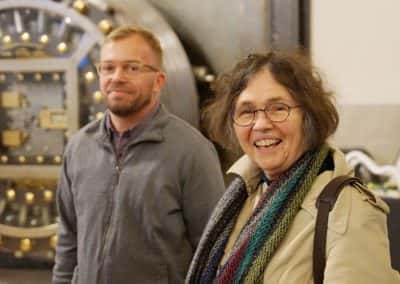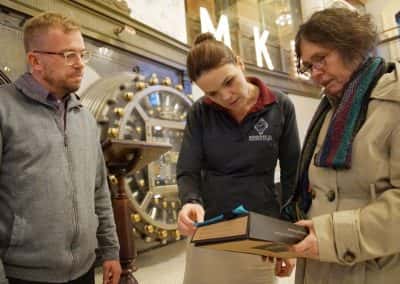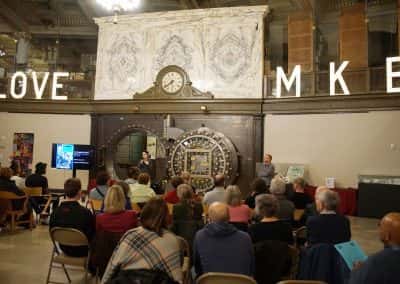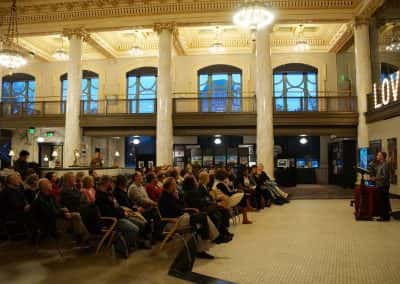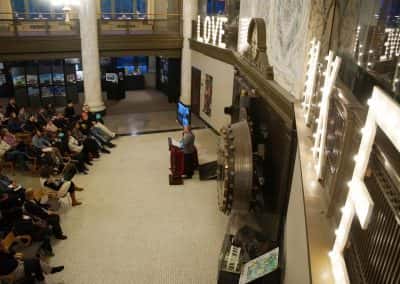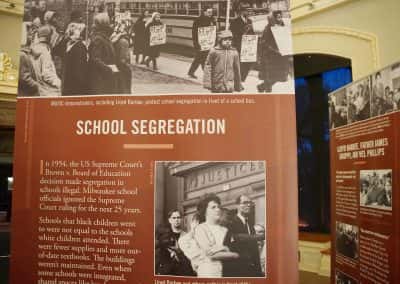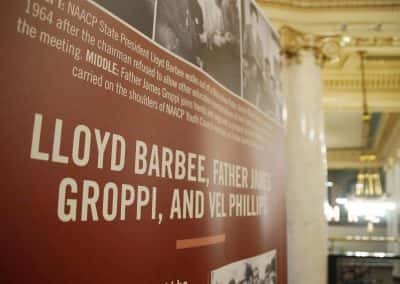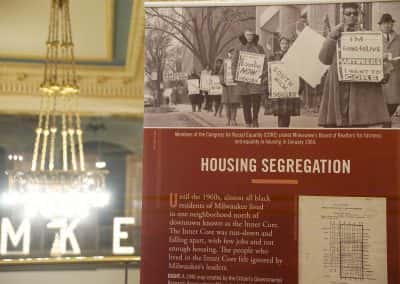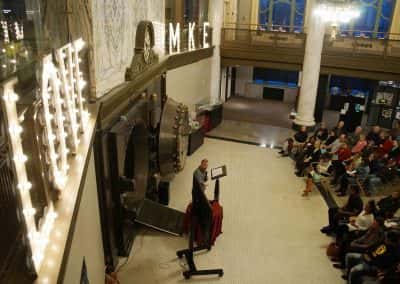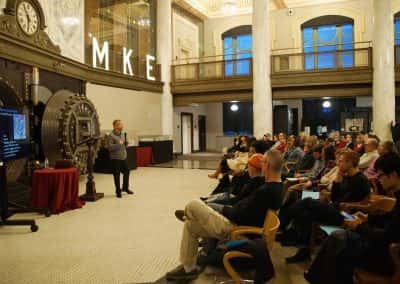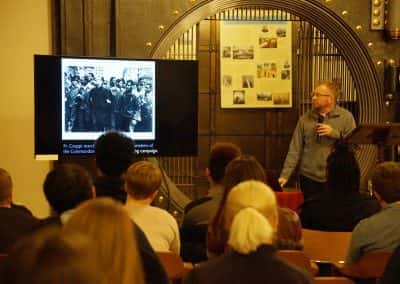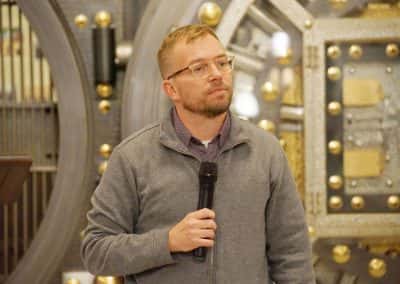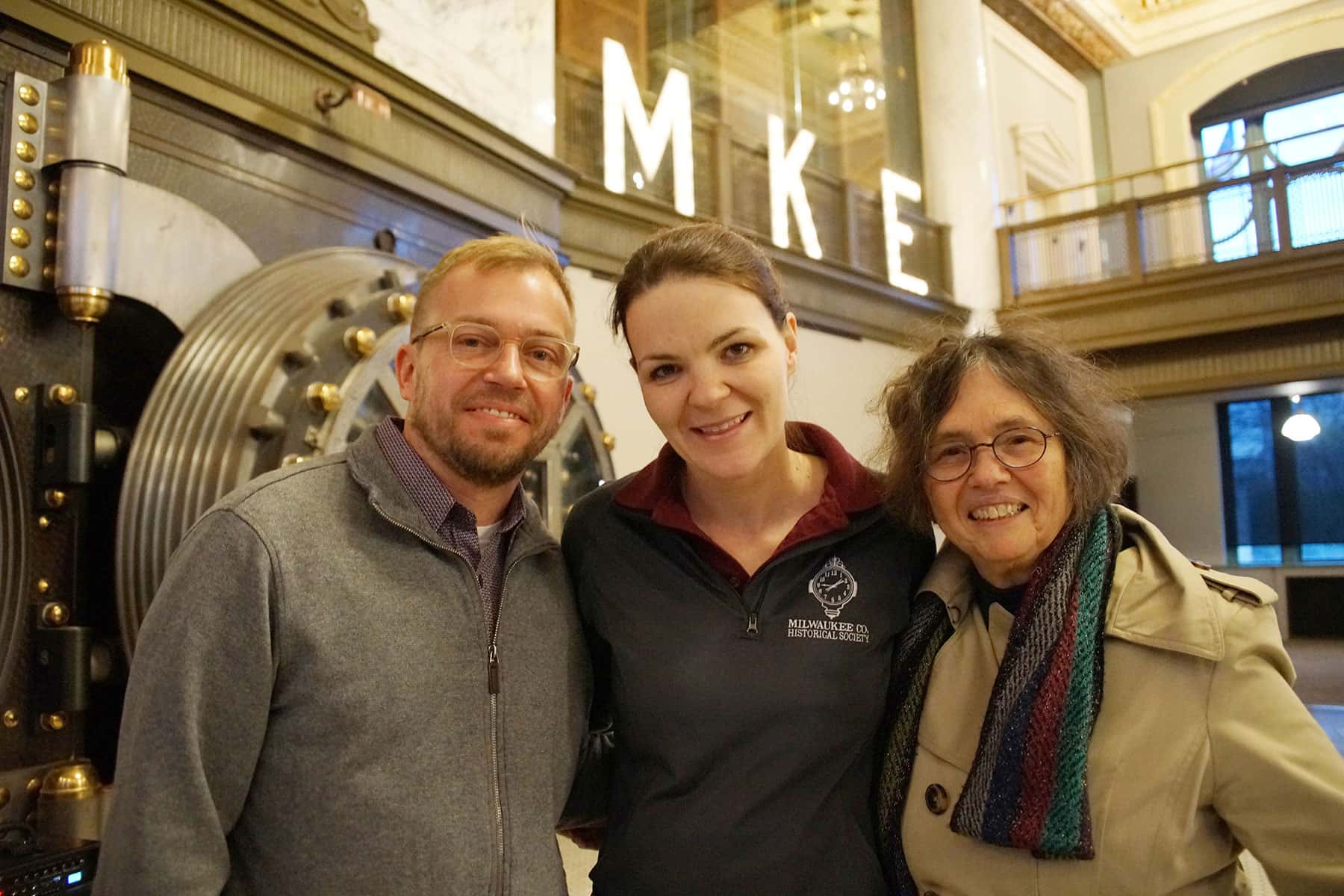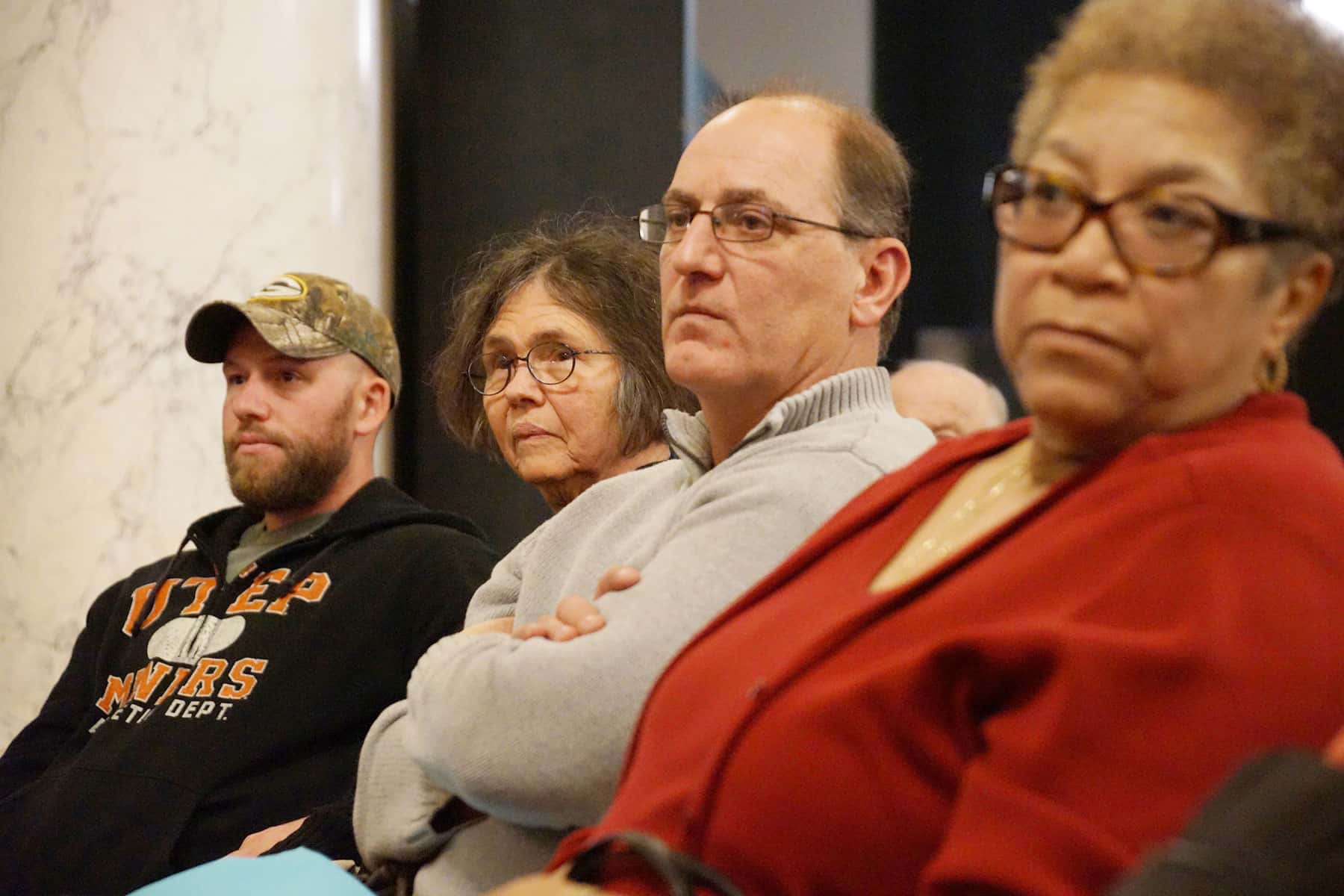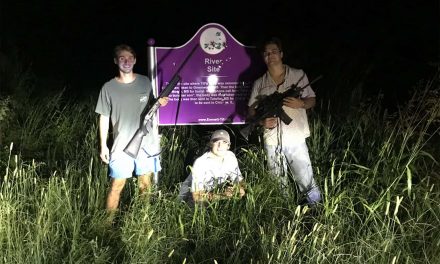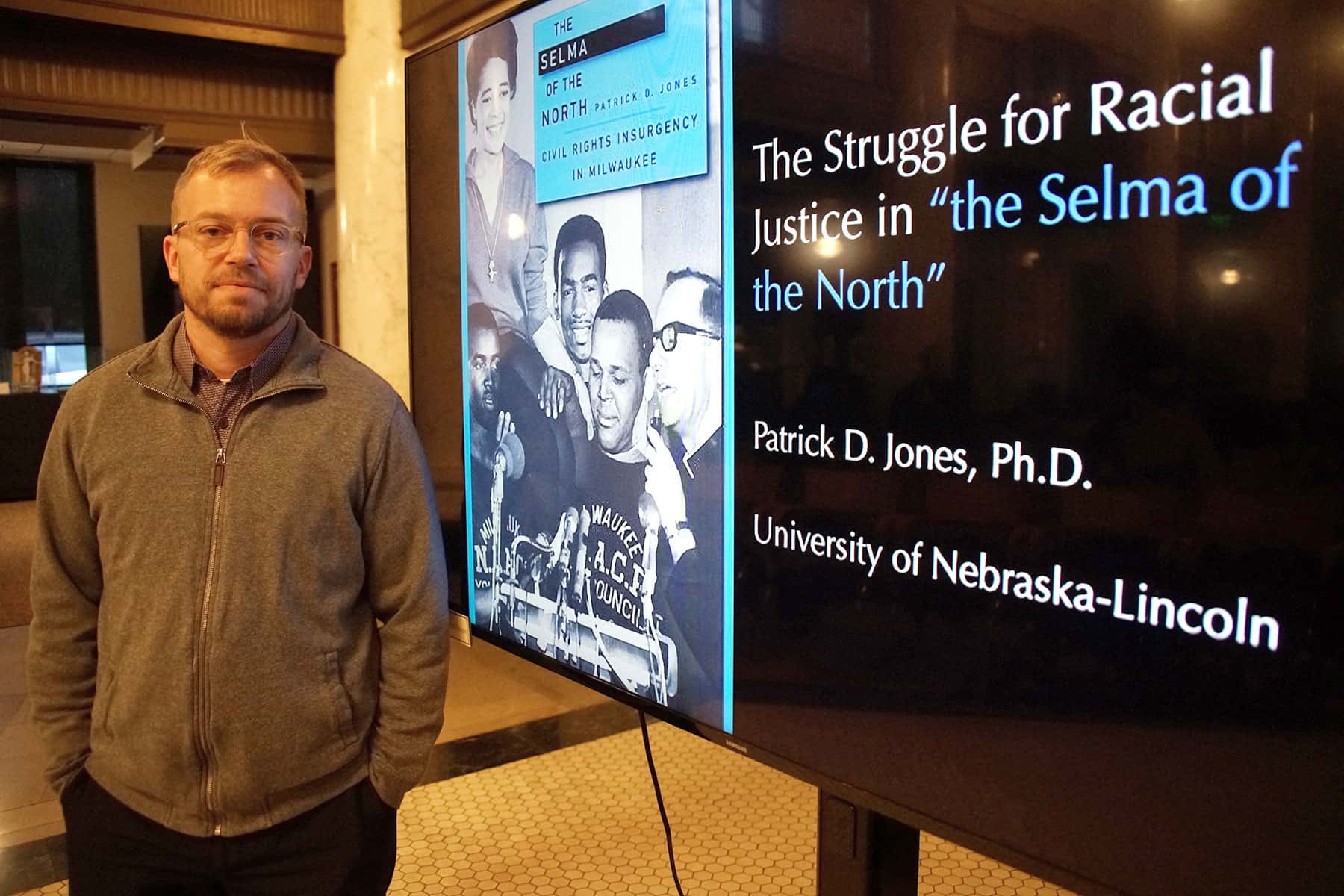
The Milwaukee County Historical Society (MCHS) hosted a “200 Nights of Freedom” event on November 3 with author Patrick Jones, who discussed his book about Milwaukee’s Open Housing Marches of 1967-1968.
Stories about the Civil Rights era of the 1960s traditionally focus on events in cities like Selma, Birmingham, Montgomery, and Greensboro in the South. They are an important part of the movement’s narrative, but by overlooking what was going on in the North at that time a vital part of the history is missing.
The City of Milwaukee was central to the struggle of urban crisis, and foreshadowed issues that the country continues to face today. Milwaukee was considered the Selma of the North.
Patrick Jones tells a powerful and dramatic story that is important for its insights into civil rights history: the debate over nonviolence and armed self-defense, the meaning of Black Power, the relationship between local and national movements, and the dynamic between southern and northern activism. Jones offers a valuable contribution to movement history in the urban North that also adds a vital piece to the national story.
Between 1958 and 1970, a distinctive movement for racial justice emerged from unique circumstances in Milwaukee. A series of local leaders inspired growing numbers of people to participate in campaigns against employment and housing discrimination, segregated public schools, the membership of public officials in discriminatory organizations, welfare cuts, and police brutality.
The Milwaukee movement culminated in the dramatic—and sometimes violent—1967 open housing campaign. A white Catholic priest, James Groppi, led the NAACP Youth Council and Commandos in a militant struggle that lasted for 200 consecutive nights and provoked the ire of thousands of white residents. After working-class mobs attacked demonstrators, some called Milwaukee “the Selma of the North.” Others believed the housing campaign represented the last stand for a nonviolent, interracial, church-based movement.
Northern stories like Milwaukee continue to be omitted from the national consciousness because it is not a redemptive narrative of American democracy. It is a bleak portrait of failure and the on-going urban crisis. The portrait compels people to confront the racial and economic issues that remain present in America.
Milwaukee’s particular history is so important because it helps the public think critically about the roots of the city’s urban crisis, so that the community can think more effectively and constructively about solutions.
The audio of Patrick Jones presented here was recorded at MCHS as he explained the significant findings from his book to an audience of more than one hundred. 200 Nights of Freedom will continue to hold related event through March 2018.
“What you and your courageous associates are doing in Milwaukee will certainly serve as a kind of massive nonviolence that we need in this turbulent period. You are demonstrating that it is possible to be militant and powerful without destroying life or property. Please know that you have my support and my prayers.”
– Martin Luther King Jr., Telegram from Atlanta to Father James Groppi, September 4, 1967
© Photo
Lee Matz

